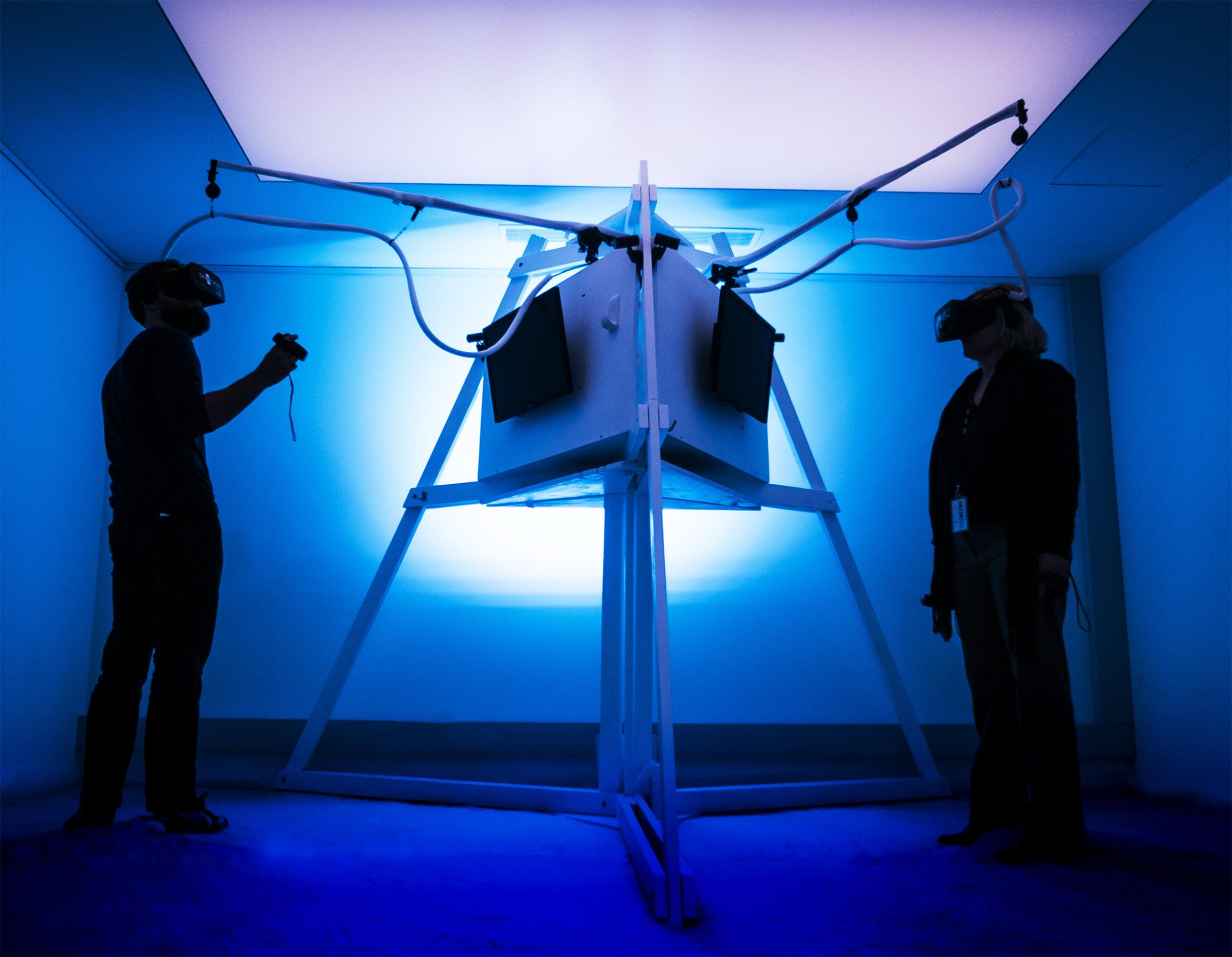The church was the first news magnate, says tech entrepreneur Oliver Luckett. It was a top-down centralized network where just few people could access the word of God, and would disseminate that information to the masses. Centuries later another top-down network emerged: print and later television media boomed and set the agenda, relaying information with authority from just a handful of networks. Today’s communication system has a different architecture: it’s holonic, says Luckett, or horizontally disseminated – everyone with a signal and a device can produce, contribute, dispute and report news. So in which system are we better off? Are we any closer to the truth now than we were then? Luckett contends that human emotion has become the editor-in-chief of today’s news, and that to steer us away from misinformation, fake news, and opinion masquerading as fact, it will require a concerted effort in social responsibility – something that we may not be capable of en masse. Oliver Luckett and Michael J. Casey’s book is The Social Organism: A Radical Understanding of Social Media to Transform Your Business and Life.
Oliver Luckett and Michael J. Casey’s book is The Social Organism: A Radical Understanding of Social Media to Transform Your Business and Life.
Oliver Luckett: For all of the history up until this point, our communication structures have for the most part, especially mass media systems, have been very top down and they've been controlled by a few people that had distribution control. If you look back the church was really the first broadcast network. The church built out a very defined architecture of communication that was coming from a centralized place where very few people could have the word of God come down to them and they had the ability to transcribe – this was at a point when literacy was very rare and so you had only a few people that were illiterate that could transcribe this holy word – and then they would distribute it out to a local market where you had a big impressive building that had lots of iconography and lots of beautiful images inside of it and the tallest building usually in the town and they would ring with the steeple at 8:00 a.m. and we would all congregate for mass and we would listen to one message from one incontrovertible truth, from one source.
And that's not too dissimilar from television architecture. You have a group of people in suits in New York or in Los Angeles and they're deciding what's going to be on television and then they distribute it to those towers. And at 7:00 p.m. prime time we aggregate around a television that's been brought into our home and we watch this one incontrovertible truth and this signal from a top down approach. And when the Internet started enabling people first with this underlying network architecture of TCP/IP that allowed us to transcend time and distance, that allowed any node on the network to contribute to the system, and then we started seeing things like video sharing and a photo sharing that allowed us all to become publishers. And then we had this kind of this layer of social that is redefining everything where every single person is now a contributing node on the network, and every person that is part of that uses emotions and memes and content to distributor things in a horizontal fashion. And so what that's doing is destroying the ability to discern what is authentic; what is not, what's real; what's fake, what's commercial; what's non-commercial, what's sponsored; what's non-sponsored, what's a good idea versus a bad idea. And so when we exist in this freeform society where every node on the network can contribute something to the network, and it has no checks and balances if you will, there is no top down authority that's editing it or deciding what's real or not – then suddenly it becomes every node on the network's responsibility. We’re all having to learn a pattern of behavior that we're all responsible for the propagation of this content.
Because the one interesting rule is it's very difficult to make a mass media statement in a cellular holonic structure nodal network because you have to get a bunch of people to agree to share it and agreed to propagate it. No big media company can buy their way into the system anymore. But at the same time if everybody is on a balanced playing field then people that are hackers or people that scam the system or people that kind of arbitrage the new ad features that emerge or decided to take this path, have an advantage over some of the tried-and-true institutions, you know, especially in things like the context of fake news that's been happening a lot. The idea that a bunch of Macedonian teenagers that are arbitraging ad dollars on Facebook's system can put hundreds of stories into a network that people believe, these fake news stories, when a New York Times or a Wall Street Journal refuses to pay for play in a system like Facebook. And so you have this great imbalance because we haven't learned yet how to - we haven't taught ourselves yet how to discern what's real and what's fake and how to look at sources and how to see them for what they are.
And that's also because of a lack of transparency. We're living in these systems now that are controlling our ability to disseminate information and we have no transparency whatsoever when it comes to algorithms. Why this does content behaved this way, why one day when I post something to 500 people does it reach and the next they only five people reaches? And so until we have visibility into that system and into these algorithms we're going to be at a bit of a loss and a bit of a grabbing in the dark trying to make sense of this new communication architecture.
I quote Aldous Huxley, paraphrase him basically says: The only part of the universe you can possibly control is yourself. And now more than ever that kind of social responsibility is upon each one of us. Because now we're in a holonic system, a cellular holonic system that we are all responsible with the propagation of the right information, positive information, negative information, fake information. We're all responsible for it because we're all part of a metabolic factor inside of the system. The sharing of these memes is propelled by emotions. So human emotions are the metabolism of this system. And you can tap into human curiosity and the whole range of emotions from anger to laughter to desire and so we're seeing that played out in real time right now.







